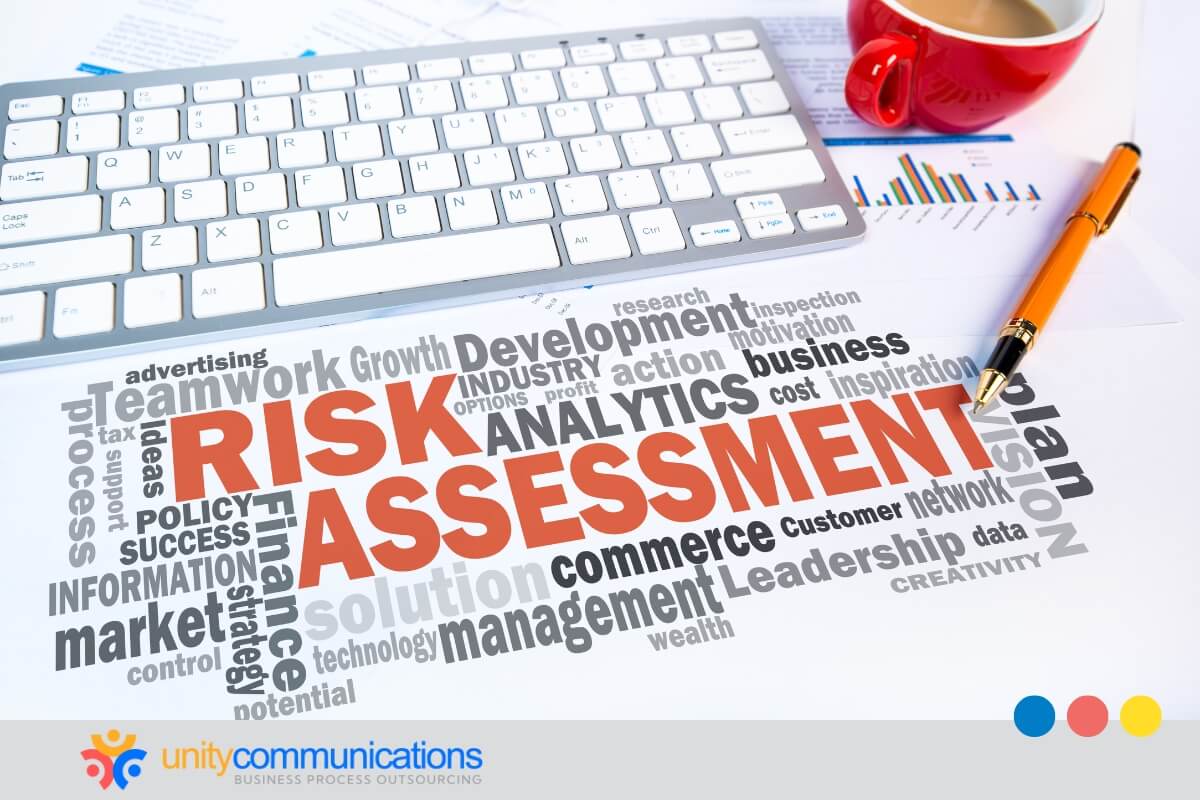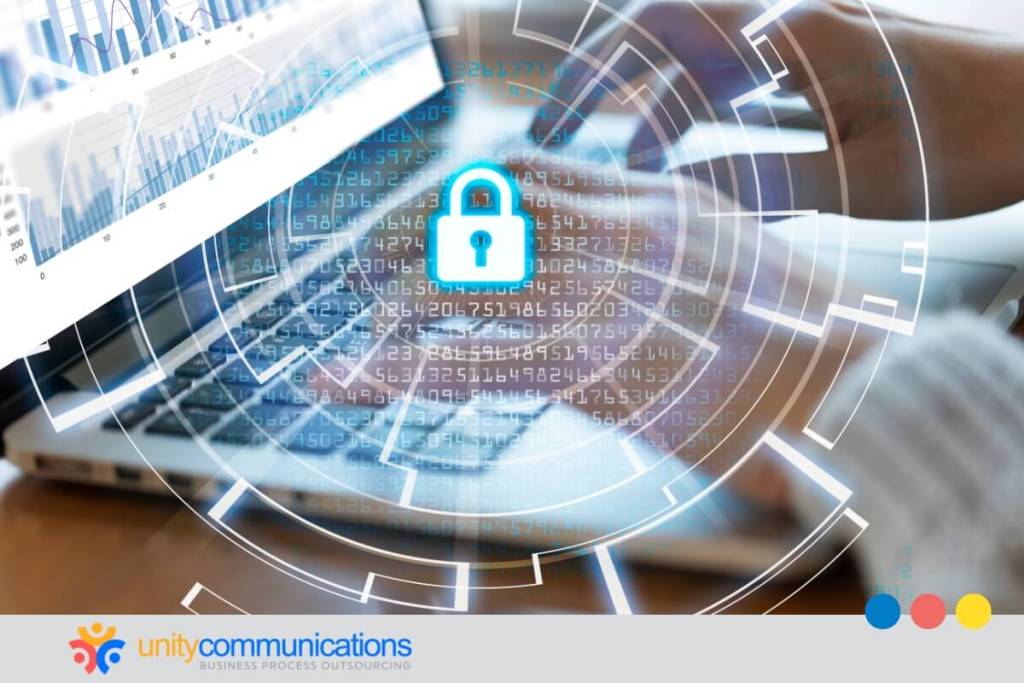IN THIS ARTICLE
Table of Contents
Cybersecurity is vital in business process outsourcing (BPO), as it protects against unlawful theft or misuse of various forms of data. This data can encompass sensitive personal information, protected health records, intellectual property (IP), passwords, or any confidential discussions pertinent to business operations.
A BPO company is susceptible to cyberattacks without a robust cybersecurity program, rendering it an attractive target for cybercriminals.
This article explores the relationship between BPO operations and cybersecurity laws, outsourcing providers’ challenges when upholding data security measures, and their strategies for keeping sensitive information safe.
Ensuring BPO security: Cybersecurity laws affecting providers worldwide

BPO deals often involve handling clients’ sensitive data and personal information, including personally identifiable information (PII), financial data, and proprietary business information. Effective cybersecurity measures are necessary to protect this data from unauthorized access, breaches, or theft.
Maintaining robust cybersecurity practices enhances client trust and confidence in third-party service providers. Clients rely on BPO companies to protect sensitive data; they expect assurance that their information is safe from cybersecurity threats. A cyber incident can severely damage the BPO company’s reputation and lead to client loss.
Moreover, cybersecurity helps mitigate the risk of security breaches, data loss, and other cyber threats that can disrupt business operations and result in significant financial losses. To illustrate, the worldwide average breach cost in 2023 was $4.45 million.
Several laws and regulations govern cybersecurity and data privacy practices. Here’s a closer look at how the U.S. and BPO hubs around the world implement cybersecurity laws relevant to the industry:
- General Data Protection Regulation (GDPR). The GDPR applies to companies operating in the European Union (EU) or processing the personal data of EU residents. It sets strict requirements for personal data protection, including data encryption, data breach notification, and the appointment of Data Protection Officers (DPOs).
- California Consumer Privacy Act (CCPA). The CCPA is a California law that gives consumers more control over the personal information that businesses collect. It requires businesses to disclose data collection and sharing practices, allow consumers to opt out of data sharing, and implement security measures to protect consumer data.
- Health Insurance Portability and Accountability Act of 1996 (HIPAA). HIPAA is a U.S. federal law that regulates the handling of protected health information (PHI). BPO companies handling PHI must comply with HIPAA requirements, including implementing safeguards to protect PHI from unauthorized access or disclosure.
- Payment Card Industry Data Security Standard (PCI DSS). The PCI DSS comprises security standards that ensure companies that accept, process, store, or transmit credit card information maintain a secure environment. BPO operations involved in payment processing must comply with PCI DSS requirements to protect cardholder data
- The Philippines’ Cybersecurity Act of 2015. This Philippine law aims to strengthen the country’s cybersecurity capabilities and protect critical information infrastructure. It establishes a National Cybersecurity Plan and mandates measures to protect against cyber threats.
- Singapore’s Personal Data Protection Act (PDPA). The PDPA governs organizations’ collection, use, and disclosure of personal data. Singapore-based BPO organizations must implement reasonable security measures to protect personal data from unauthorized access, disclosure, or destruction.
- India’s Data Protection Act. India’s Data Protection Act aims to regulate the collection, processing, and use of personal data by Indian BPO companies and foreign firms dealing with the personal data of Indian citizens. It imposes obligations on data controllers and processors to ensure the security of personal data.
Challenges in upholding cybersecurity measures in BPO operations

Reports show that ransomware attacks increased by 13% in 2022. The seriousness of the situation remains apparent, making cybersecurity even more necessary.
However, integrating data security measures into BPO operations can be difficult. Providers might face the following obstacles:
- Supply chain risks. BPO operations rely on a network of suppliers and partners, increasing the risk of supply chain attacks. Verifying the security posture of third-party suppliers and establishing secure communication channels are critical to mitigating supply chain risks.
- Employee training and awareness. BPO employees may not always be adequately trained in cybersecurity best practices, leading to incidents and unintentional security breaches. Providing employees with comprehensive training and awareness programs is crucial but can be resource-intensive.
- Evolving threat landscape. Cyber threats constantly evolve, making it demanding for BPO operations to stay ahead of potential security risks. Addressing the latest cyber threats requires continuous monitoring, threat intelligence research, and the adoption of security measures.
- Complex IT infrastructure. BPO operations often have complex information technology (IT) infrastructures involving various systems, networks, and applications. Securing such diverse environments while ensuring seamless operations can be challenging and requires robust cybersecurity solutions.
- Budget constraints. Allocating sufficient resources and budget to cybersecurity initiatives can challenge BPO operations, especially for smaller firms. Balancing the need for security with budget constraints requires careful planning and prioritization.
- Insider threats. BPO operations face the risk of insider threats, where employees or contractors intentionally or unintentionally compromise security. Implementing access controls, monitoring systems, and conducting regular audits are essential to mitigating insider threats.
How BPO companies secure compliance during outsourcing projects

So, what can BPO companies do to ensure robust cybersecurity during outsourcing engagements? Primarily, BPO companies ensure compliance with cybersecurity laws and standards through the following strategies, processes, and technologies:
- Security standards and frameworks. BPO companies adhere to established security standards and frameworks such as ISO 27001, NIST Cybersecurity Framework, and SOC 2. These frameworks help implement robust cybersecurity controls, conduct risk assessments, and ensure compliance with regulatory requirements.
- Access controls and data encryption. BPO companies implement stringent access controls so only authorized personnel can access sensitive data. They also employ data encryption techniques to protect data in transit and at rest, ensuring that even if data is intercepted, it remains unintelligible to unauthorized parties.
- Contractual obligations. BPO companies establish clear contractual obligations regarding cybersecurity compliance with third-party vendors. These contracts outline the specific security measures that must be implemented, roles and responsibilities for cybersecurity, incident response procedures, and compliance with relevant regulations.
- Risk assessments. BPO companies conduct thorough risk assessments to identify potential cybersecurity risks and vulnerabilities in the outsourcing engagement. These evaluations consider the data being handled, the client’s and vendor’s security posture, regulatory requirements, and the geopolitical landscape.
- Employee training and awareness. BPO companies regularly provide employees with training and awareness programs to educate them about cybersecurity best practices, the importance of data protection, and how to recognize and respond to security threats such as phishing attacks or social engineering attempts.
- Monitoring and incident response. BPO companies deploy advanced tools to continuously monitor networks, systems, and applications for any signs of suspicious activity or security breaches. They also have robust incident response plans to quickly detect, respond to, and mitigate security incidents.
The bottom line
BPO operations must comply with relevant cybersecurity laws and regulations to avoid legal penalties and protect the client’s sensitive information. This process often involves implementing robust cybersecurity measures, conducting regular security assessments, and staying updated on evolving cybersecurity threats and best practices.
Let’s connect to learn how BPO providers can guarantee adherence to cybersecurity laws.





